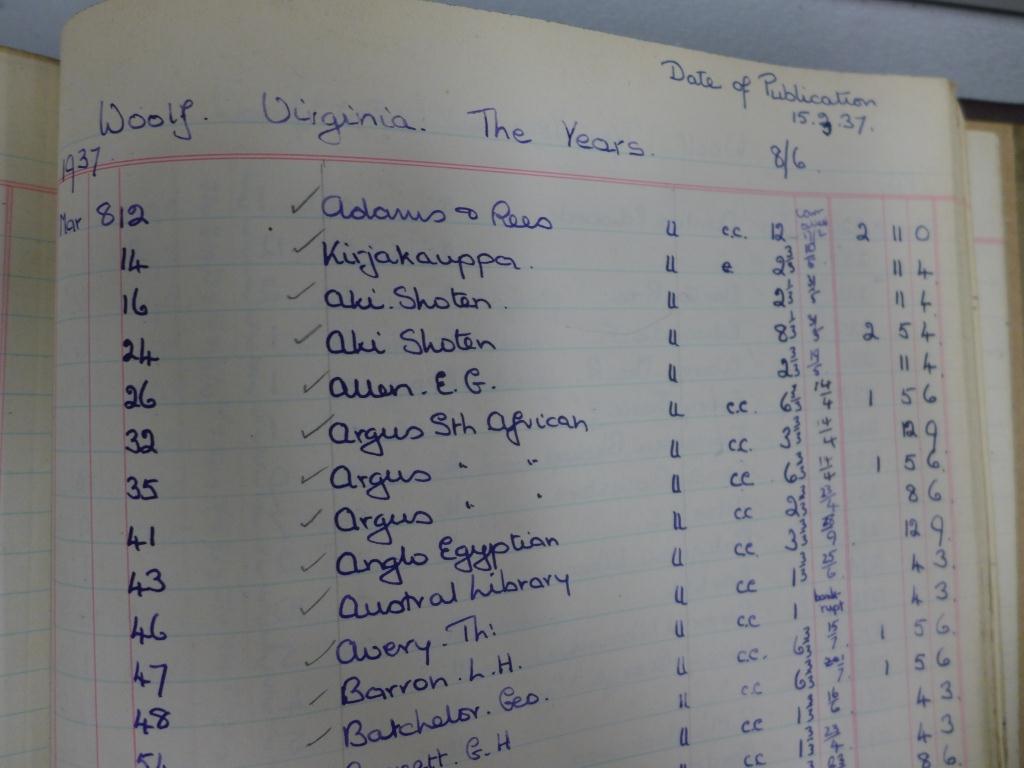Our latest post comes from Dale, who has recently completed a six week UROP placement here at special collections. Dale has made a great start on the project entitled ‘Selling the books of Virginia Woolf’ using the Hogarth Press Archive and is about to enter his final year studying with the English department.
The Hogarth Press Archive sits in the Special Collections of the university, available to researchers who have the permission of Random House (who own the archive) and that of the relevant author’s estate, who hold the copyright for the material. My task for the past six weeks has been to transcribe into Excel some of the handwritten entries detailing the orders for Virginia Woolf’s novels and essays in the original order books kept by the firm. In this modern age of digitisation and data sharing throughout the world, it seems only sensible to make information available digitally or in this case electronically for future online access to researchers globally.
The process of transcription is at times a slow one. The records are extremely detailed, listing information such as customer, location, date of dispatch and payment, and the exact amount received by the press. On top of this the issue of legibility slows progress considerably, some handwriting being clear and easy to transcribe, some much more difficult due to highly stylised penmanship. Over the course of the past six weeks, I have transcribed the records for four Virginia Woolf novels, namely Between the Acts, The Years, To the Lighthouse, and A Room of One’s Own, with total sales figures ranging from around 4,500 copies to around 15,000 copies.
Transcription may not sound too thrilling a task, but the excitement comes from the long lasting benefits this research could provide to Woolf scholars everywhere. Currently researchers wishing to consult the order books need to visit the Special Collections in person or enlist someone to carry out the research on their behalf. The ultimate goal of this project is for these transcriptions to be made available online as part of the Modernist Archives Publishing Project (MAPP) This will enable scholars throughout the world to access this information, which will appear alongside other types of research and digitised archival material relating to modernist authors and publishing.
My part, however, is just the first step. There’s no telling how long it will take for other parts of the archives to be transcribed and digitised, but perhaps these past six weeks may provide an example of how much can be achieved, and of the benefits of such a project. I have every hope that this project will succeed, and also grow to exceed initial aims and expectations, and I for one will be following its progress every step of the way.
As well as providing a useful tool for future research, I too have gained from this project. Before now I had never been to MERL and the Special Collections, never worked with archives, and never carried out research of this kind. I came to this project hoping to discern whether or not I would be interested in postgraduate research, and whether or not I could do this directly after graduating, and I have learned without a doubt that I could indeed go straight into postgraduate research. Working alongside scholars and archivists provides a completely different experience to that of undergraduate research, and it is an experience which I would highly recommend.






